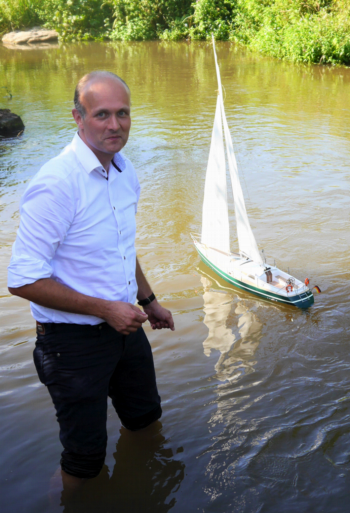Lecturer: Diedrich Wolter
Fields: Artificial Intelligence

Content
AI has defeated human players in several games so far, including board and video games. However, computers cannot compete with humans in physical simulation games, let alone in in real-world every day problem solving in a physical environment. Why?
In this course we set out to explore why solving novel physical interaction problems is so hard and we discuss AI techniques such as reasoning, planning, or learning that may help to make progress towards mastering physical manipulation tasks. Participants in the course will make their own experiments by implementing rules or algorithms to make their own agent. We take a look at the Bambird agent we develop that has won the international scientific “AI Birds” competition twice and discuss the gap between AI and human performance we still need to bridge.
Literature
- Kenneth D. Forbus (2019). Qualitative Representations: How People Reason and Learn about the Continuous World, MIT press
- Malik Ghallab, Dana Nau, Paolo Traverso (2016). Automated Planning and Action, , Cambridge University Press
- Peter Norvig, Stuart J. Russell (2020). Artificial Intelligence: A Modern Approach, 4th edition, Prentice Hall
Lecturer

Prof. Dr. Diedrich Wolter studied informatics at the University of Hamburg and obtained his doctoral degree from the University of Bremen in 2006 where he researched spatial representation and reasoning for mobile robots in context of the multi-disciplinary research center “spatial cognition”. He continued as principal investigator in the spatial cognition research center before joining Bamberg University in 2013. At Bamberg, he heads the group on Smart Environments which studies Knowledge Representations and their use in intelligent systems. Since 2016 he develops the “Bambirds“ agent together with his students. So far, they have won the international AI birds competition twice and they aim to advance AI’s performance in real-world problem solving. He first visited IK Günne in 1997 as student.
Affiliation: University of Bamberg
Homepage: https://www.uni-bamberg.de/en/sme/team/diedrich-wolter/